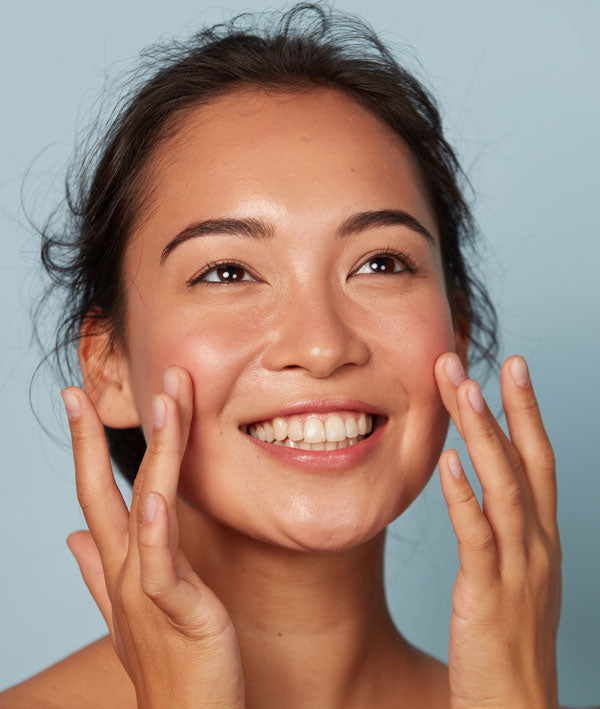If you are prone to pesky blemishes, knowing exactly what type of acne you’re dealing with is essential for properly treating active pimples and preventing them in the future. We’re breaking down the differences between two of the most common forms of acne – hormonal and bacterial – and how to determine which one you have.
What Is Hormonal Acne?
As the name implies, hormonal acne is tied to hormonal fluctuations, such as during pregnancy and menstruation. It’s primarily caused by androgens, which are male sex hormones (testosterone being one of the key players). These hormones trigger the production of sebum – your skin’s natural oil. When the sebum gets clogged in the pores and mixes with dead skin cells, bacteria, and other debris, it can cause blemishes.
Hormonal acne most commonly affects women, but men can experience it, as well. It is typically characterized by deeper, tender pimples, but may also involve blackheads and whiteheads. These blemishes also mostly appear on the lower parts of the face, around the jaw and chin.
What Is Bacterial Acne?
On the other hand, bacterial acne is an inflammatory response that is caused by – you guessed it – an overgrowth of bacteria (specificallyPropionibacterium acnes). When combined with sebum, this bacteria can trigger breakouts.
Bacterial acne may appear as whiteheads, blackheads, and other pimples of varying sizes, and can form all over the face (as well as on other areas of the body). It can also affect both men and women.
How To Tell The Difference
In order to tell whether you’re dealing with hormonal or bacterial acne, you should consider any patterns you’ve noticed – both in terms of when you breakout and where your acne forms. For example, if you tend to notice tender bumps popping up on the lower part of your face at a certain point in your menstrual cycle, you might be battling hormonal acne. On the other hand, if your breakouts tend to be more random and scattered on your face, you might have a case of bacterial acne on your hands.
It can be difficult to pinpoint your condition on your own, and we do recommend meeting with a dermatologist who can properly assess your situation – especially if you’re having a hard time keeping breakouts at bay. They can not only determine what kind of acne you have, but will also guide you towards an effective treatment plan.
Treatment Options For Hormonal Acne
If you’re dealing with hormonal acne, the most effective treatment will be addressing the root cause: hormones. Birth control pills are often prescribed to help women manage their hormonal acne, as they are able to control testosterone and balance hormone levels. A dermatologist may also recommend an anti-androgen like spironolactone, which similarly can help stabilize hormones to reduce breakouts.
A targeted skincare routine will also play a role in minimizing hormonally-induced breakouts. Topical acne-fighting ingredients – such as retinoids, salicylic acid, and benzoyl peroxide – can help reduce clogged pores. While it won’t play a direct role in reducing breakouts, you may also consider avitamin C serum to help fade the appearance of hyperpigmentation caused by previous blemishes.
Treatment Options For Bacterial Acne
As you can imagine, the key to fighting bacterial acne is getting the overgrowth of bacteria in check. Benzoyl peroxide is one of the most commonly used topical treatments for bacterial acne. This ingredient helps kill acne-causing bacteria, and is also able to remove pore-clogging excess oil and dead skin cells. Retinoids may also be beneficial, as they can unblock the pores to treat and prevent breakouts.
If these treatments don’t work on their own, a dermatologist may also decide to prescribe an oral antibiotic, such as minocycline or doxycycline. These medications work to reduce inflammation and bacteria to lessen breakouts.






